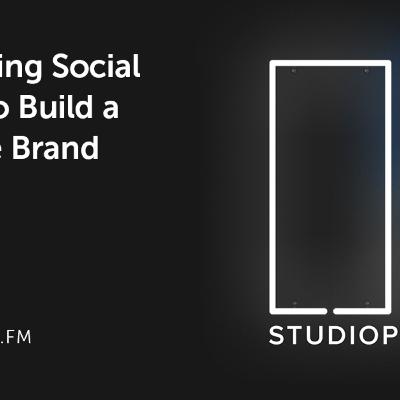How (and Why It s OK) to Make Money with WordPress, with Matt Mullenweg
Description

This week, we have the very distinct pleasure of talking to a gentleman who is not only a talented member of the WordPress community … but the one responsible for it.
Rainmaker.FM is Brought to You By
Discover why 201,344 website owners trust StudioPress, the industry standard
for premium WordPress themes and plugins.
Launch your new site today!
Matt Mullenweg is the founding developer of WordPress, which currently powers over 26% of sites on the web. The WordPress website says it s “a state-of-the-art semantic personal publishing platform.”
More importantly, WordPress is a part of who Matt is.
In this episode Brian Gardner, Lauren Mancke, and Matt Mullenweg discuss:
- Matt s start with WordPress
- Founding Automattic in 2005
- The difference between WordPress.com and WordPress.org
- Analysis of the premium theme market
- Generating revenue in the WordPress Ecosystem
- The spirit of GPL in Open Source
- Adding paid themes to WordPress.com
- Making a profit with premium plugins
- The future of WordPress
Listen to StudioPress FM below ...
Download MP3Subscribe by RSSSubscribe in iTunes
The Show Notes
The Transcript
How (and Why It’s Ok) to Make Money with WordPress, with Matt Mullenweg
Voiceover: Rainmaker FM.
StudioPress FM is designed to help creative entrepreneurs build the foundation of a powerful digital business. Tune in weekly as StudioPress founder Brian Gardner and VP of StudioPress Lauren Mancke share their expertise on web design, strategy, and building an online platform.
Lauren Mancke: On this week’s episode, Brian and I are joined by Matt Mullenweg, the founder of Automattic, to discuss how (and why it’s okay) to make money with WordPress.
Brian Gardner: Hey, everyone. Welcome to StudioPress FM. I am your host, Brian Gardner, and I’m joined as usual by my co-host, the vice president of StudioPress, Lauren Mancke.
Lauren Mancke: Hello, everyone. Thanks for joining us this week. We are continuing our series on talking to members of the WordPress community.
Brian Gardner: Now, today we have the very distinct pleasure of talking not just to a member of the WordPress community, but one of the people responsible for it. Matt Mullenweg is the founding developer of WordPress, which, as it stands to date, powers over 26 percent of the web. Probably more even at that point. The WordPress website says it’s a “state of the art semantic personal publishing platform,” but more importantly to Matt, WordPress is a part of who he is. Matt, it’s a huge pleasure to have you on the show StudioPress FM, welcome.
Matt Mullenweg: Awesome. I’m very excited to be here.
Brian Gardner: There is a huge back story to all of this. For those of you who have been following StudioPress and me over the years, you know that I got started in WordPress in 2006, 2007. I can’t believe it’s been that long. We were just talking about that. I wanted to start at the beginning of your journey. I know in 2005 you founded Automattic and that is the secret force behind WordPress, Akismet, Gravatar, VaultPress, IntenseDebate, and a number of other smaller entities.
This story for you goes further back though. Before Automattic formed, you and Mike Little forked this little blogging platform called b2. Run through us the early years of WordPress and what it was back then you were hoping to achieve.
Matt’s Start with WordPress
Matt Mullenweg: Oh, our goals were very modest. I would say that back then we were just looking to have some good software for ourselves. To have something that we could use and continue. B2 had a pretty good community around it. There were some forums we would participate in. It had a pretty cool active little thing going on, and it just seemed a shame that it was slowing down. Mike and I had already interacted on the forums a lot. We followed each other’s blogs. He was releasing code and I was releasing code. He’s also a super nice guy, so it just seemed very natural to work together. It’s funny though, that we didn’t actually get to meet in person until many years later.
Brian Gardner: Yeah. I find that to be — Lauren and I are good examples of that. We met probably three or four years ago in person, but had known each other five or six years even before that. It’s funny how we can, in our Internet lives, finally get to that point where you get to do that ‘in real life’ thing with people who you’ve met, or known, or entrusted with a business, or even just become really good friends. To not really get to meet them in person for years down the road … Quick question though with Mike. You met on the forums. At what point did you think to yourselves, “We need to fork the software,” and then just take it and do your own thing with it?
Matt Mullenweg: At the point when it was no longer being developed and it didn’t appear like there was a way forward. In some ways, for a period of time there, b2 was abandoned. When proprietary software gets abandoned you’re just out of luck. If open source gets abandoned, you can pick it up and run with it. So there was a fumble, we picked the ball, and we tried to take it to the end zone. And that is the extent of my sports metaphors I have the knowledge to make.
Brian Gardner: Especially in San Francisco, right? We won’t talk about the 49ers right now.
Matt Mullenweg: It’s funny you talked about meeting people though. We actually have a tool inside Automattic that tracks who you’ve met in person. So you have a percentage and everything. Right now, because we just had our grand meet up, I’m at 81%, which is pretty high. That means I’ve met 404 of the 501 total Automatticians.
Brian Gardner: I just saw the picture of you guys. You guys were on Whistler, right?
Matt Mullenweg: We were, Whistler, British Columbia.
Brian Gardner: I just saw the picture and I was thinking to myself, “That is a lot of people.”
Matt Mullenweg: Yeah, I agree.
Brian Gardner: Did you think that back then when you and Mike forked this piece of software, that 10, 12 years later, however long it’s been, you would be in charge of a company with 400 or 500 people?
Matt Mullenweg: Never in a million years. If I had had a big ambition at that time it was maybe to be a really good webmaster or have a little hosting company with 500 clients or something. It was very modest. I think the big business plan idea was I could get 500 people paying me $20 a month. That was it. I was like, “Then I can just retire.”
Lauren Mancke: Some people get confused with WordPress initially because there’s WordPress.com and WordPress.org and they might not know the difference. For our listeners, can you give us a little explanation about which one is for who?
The Difference Between WordPress.com and WordPress.org
Matt Mullenweg: It’s all WordPress in that WordPress.com runs the WordPress software. I would say WordPress.com is a good place to go if you just want to dip your toes in. As you’re first getting started, it’s a great place to start. It’s got our great community features built in. It’s got built-in live chat support, so if you ever get stuck there’s someone there to help you. And it’s pretty difficult to break it, so there’s nothing you can do there that can’t be fixed pretty easily. It also showcases some of the latest interface work around what we call Calypso, which is essentially a next-generation interface for WordPress. So WordPress.com is a very good place to start.
An advantage is that if you ever outgrow it — which many people never do — that it’s very easy to move to a web host where, if you wanted to run specific plug-ins or modify the code on your theme, you could do so. That’s what in the community we call WordPress.org. This idea that you went to website WordPress.org, downloaded the software and installed it yourself. The terminology is a little confusing, and I hope someday we come up with something that makes a little more sense. But you can think of it as, if you want to modify code you’ll want to run the software someplace other than WordPress.com. If you’re not planning to modify the code, WordPress.com’s probably the best place.
Brian Gardn























